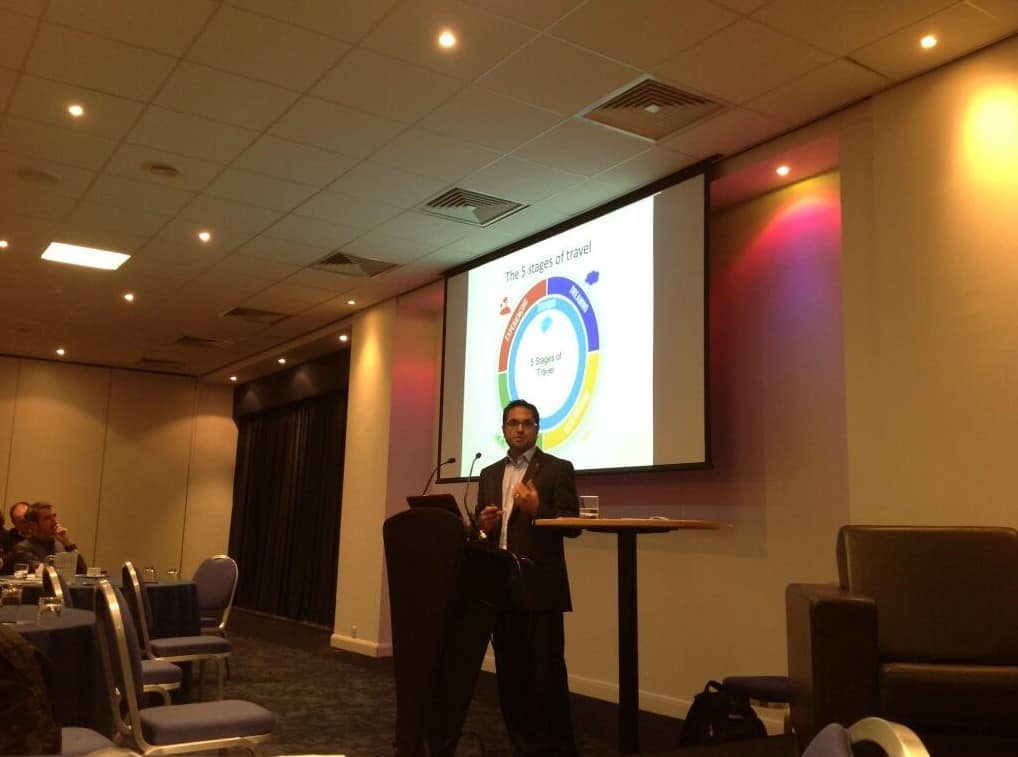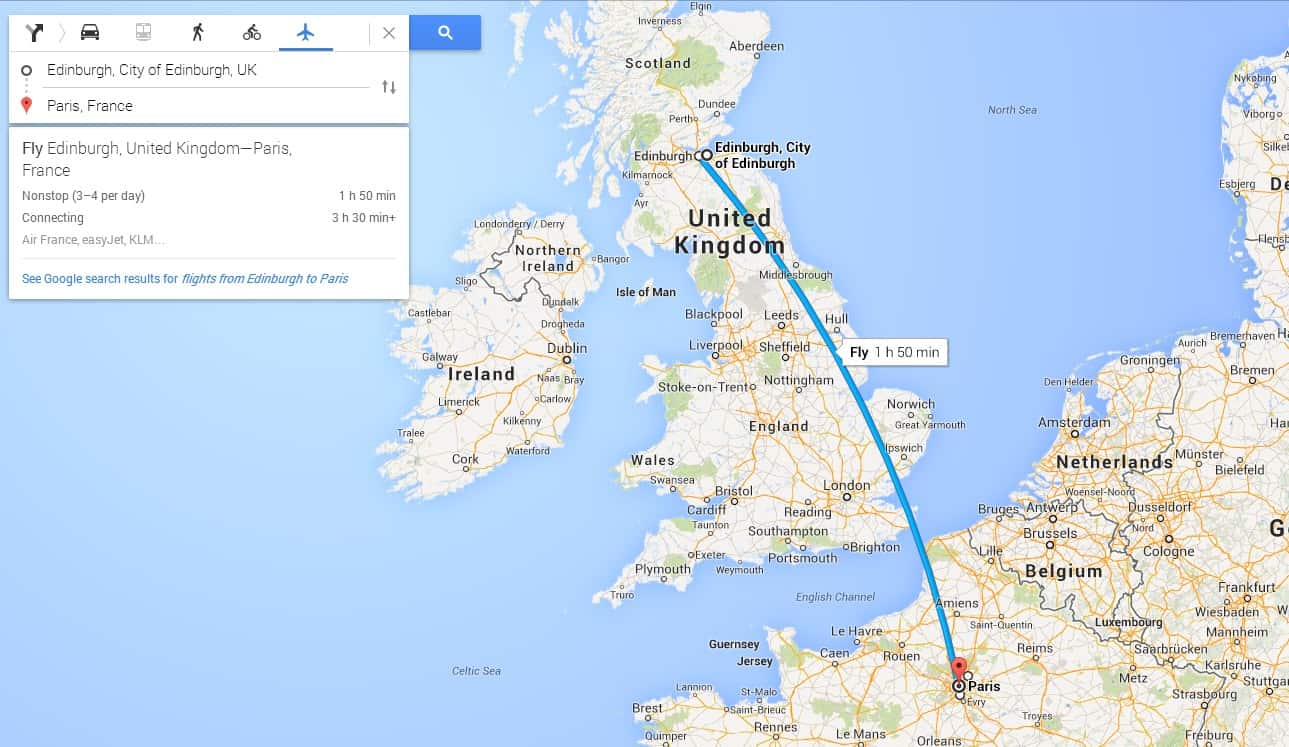The ASSC (The Association of Scotland’s Self Caterers) Conference on 5th November at Murrayfield’s last speaker of the day was Satyan Joshi – Industry Manager at Google UK. This was a talk I was really looking forward to and it did not disappoint… packed full of interesting numbers and facts here are a few of the points I picked up.
5 Stages of Travel
Google have created this framework setting out the ways that people now plan for and experience travel.

1. Dreaming
Ahhhhh Barbados, Bali, Berlin – it is pretty much doing this, we are constantly exposed to others traveling through them sharing their experiences (see stage 4) that we can only get a bit jealous and dream ourselves.
2. Researching
All this dreaming leads onto being inspired to have a look yourself. For instance Satyan explained when the TV show Benidorm was on air people become inspired and search traffic for the destination went up. Search has become massively fragmented – people research around and look at more sources and sites than ever before, until they finally settle on the site they make their booking with – I’ll talk about this later…
3. Booking
This is where the stages of travel used to end in the ‘olden days’. Once you had booked all that was left was to head off with bikini in bag.
4. Experiencing
Now in the modern age with access to online everywhere, people are having experiences that they share online, all the time. Where as before you would never have known what peoples experiences in the airport lounge were (unless really dramatic), now you do – you know what their view is that moment, you know that the man sitting next to them chews his crisps too loudly and where they are going way before they get there or get back and show you the pictures over tea and cake.
KLM’s Surprises Campaign was hugely successful and used social media to surprise passengers who were travelling on their flights. Flight attendants browsed Twitter and Foursqaure looking for people who were saying they were taking a KLM flight, then using the information that passenger provided about themselves on their social media bought them a small surprise. They gave out 40 gifts and news of the campaign spread like crazy generating one million impressions on the KLM twitter feed. This great video shows more:
5. Sharing
This stage actually goes through every part of the process. People want and need validation, they want recommendations of where to go, what they should do when they get there, where they should stay, what airport they should fly into when booking – and they ask online at every stage.
How things have changed
Booking a trip used to be much simpler than it is now… a quick visit to a travel agent, a discussion with the family and then you book. Sure, you can still do it this way but now you might get on the bus in the morning and have a look on your phone for some ideas, on your lunch break take a browse around on your desktop for some good deals or go out and grab a brochure from the travel agent, in the evening you might be at home on your laptop and have a look around some different websites for validation, later on when in bed maybe have a look at a few videos of the destination. People now use maps to back up where they will be staying and reviews to validate the booking – people will always trust reviews from real people, and some people because of this may trust booking from a real person, so might even after all this online research actually return to the travel agent for the real booking.
So I think it is easy to conclude that a modern online travel consumers journey is a complex and time consuming one!
Some numbers
- People usually book around 73 days before their actual holiday
- On average people make around 17 research sessions before booking – check and see if you are getting lots of mobile visits, if you are make sure your site is optimised for mobile, or people will just leave!
- On average people will visit the site 3 times before booking
- Leisure is an emotive industry – people want to get it right so there is a 2.19 hour total research time.
- 83% of people when they first search for travel accommodation look for non branded terms e.g. ‘family friendly cottage in St Andrews’
- Video tells a million words – 60% of leisure travelers have used video to help them decide on a destination
The smartphone traveler
The average person looks at their phone 150 times per day, there was few laughs at this at the conference but I can definitely be accused of this, constantly prodding my phone – just in case… Satyan brought up a point that you can easily leave the house in the morning having left your wedding ring at home and thing ‘ohhh i’ll get it tonight’, but leave your phone at home? You’ll go back!
But in terms of travel, 26% of UK travelers have searched for their plans on a smartphone, but only 12% actually purchased on their phone. 34% of travelers access social media every day while travelling, 86% share photos while travelling (well you have to show others that turquoise sea and perfect tan before it fades huh!?), and 81% of smartphone users in the UK have looked for local info when travelling – so cash in on this and share your knowledge with them!
Google for travel research
As I said, Satyan Joshi is an Industry Manager at Google UK, so of course was going to show us some interesting new bits and bobs from Google, the best bit of what he showed us was the flight information in maps which I had no idea was there (I clearly don’t spend enough time in Maps). You put in your travel information and it shows you how long the flight will be and who flies the route:
He also showed us the Google Map photo tours and how to see tourist hot-spots from where people are uploading photos – a great way to explore your destination before you book.
So a massive thanks to ASSC and Satyan for a great day and talk. I left with a notebook full of interesting bits of info to mull over and and things to muck around with – looking forward to next years conference!


